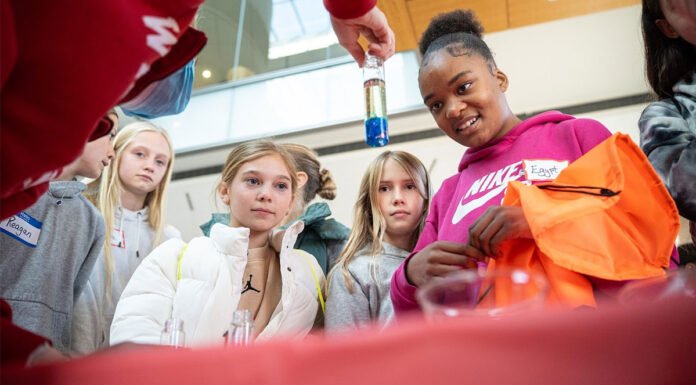In a new communications landscape that feasts on polarization, the science community needs to rethink how it engages society in scientific discovery, controversy and policy.
The authors of a report in this week’s Proceedings of the National Academies of Science (PNAS) argue that the standard communication model of disseminating the facts and assuming “the truth will prevail” is increasingly falling on deaf ears.
Instead, the science community needs to create a “collaboration model” that invites more public conversations, incorporates personal morals and values, creates a level playing field for input, and embraces uncertainty.


Report co-author Dietram Scheufele, an investigator at the Morgridge Institute for Research and professor of life sciences communication at UW–Madison, says the goal of the report is to address a perilous gap between science and society on major issues of the day, such as climate change, vaccines, gene editing and artificial intelligence (AI).
“Scientists do a good job of answering the technical questions they think are relevant, about the risks and the benefits, but these are not the questions communities are asking,” Scheufele says. “Communities are asking about what the science means for their personal identities, and what it means for their fears about a future that will look very different from what we have now.”
The technical answers are just one element of a scientific debate. They are really about people’s values and the tradeoffs that come with policy choices, he says.
“I think we’re beginning to see how technologies like AI and gene editing change how we think about what it means to be human,” he adds. “We can help make sure that science stays at the forefront of the discussions but also recognize that science alone doesn’t determine the outcome.”
Highlighting the flaws in current communication, the report cited a study of 819 different social media experiments aimed at increasing COVID vaccination rates. This “follow the data” approach shifted attitudes toward vaccines by only about 1 percent.
The report was created by science communication experts assembled by the National Academy of Sciences and is part of a special section of PNAS looking at the latest research on public engagement in science. In addition to Scheufele, authors include: James Druckman, University of Rochester; Kirsten Ellenbogen, Great Lakes Science Center; and Itzhak Yanovitzky, Rutgers University.
Among the other conclusions, the authors argued:
- Scientists often artificially position science as “value-free,” a viewpoint that ignores the fact that scientific evidence and societal values equally shape public policy.
- Top-down dissemination of science is an elitist approach to public interaction, in that it assumes people have a deficiency of knowledge and the facts will “correct” their beliefs. This approach ignores the uncertainty inherent in science and discourages dialogue.
- Polarization around science is getting worse. In 2000, 47% of Republicans and 46% of Democrats expressed a great deal of confidence in the scientific community. By 2022, those figures were 28% for Republicans and 53% for Democrats.
- Each political side exaggerates the other party’s views on science.
- Within the current communication ecosystem, politicized science ensures that the loudest and most extreme voices get the most attention. It also elevates pseudoscience to the same level and quality vetted science.
- There is a growing body of knowledge on how to do science engagement well, but very little action is being taken.
Scheufele says that communication approaches that rely on dialogue put the public on an equal plane with scientists and make participation the goal rather than altering opinions or behaviors. It also requires that scientists enter discussions with some healthy “intellectual humility.”
In this deeply challenging time for science, which faces drastic reductions in federal support, Scheufele says it’s more important than ever for scientists to address the growing divide between science and society — and recognize its own role in the problem.
“Unless we do that, we’ll end up in more and more situations like we’re in now, where science becomes a chess piece being used in political battles,” he says. “Science is the most important mechanism we have for creating, curating and disseminating knowledge.”
Scheufele is co-director of the Morgridge Science Communication Incubator Lab, which provides a test bed to experiment with new ideas in public engagement. The lab brings together scholars on science communication with outreach specialists at Morgridge who bring programs to thousands of citizens every year.






